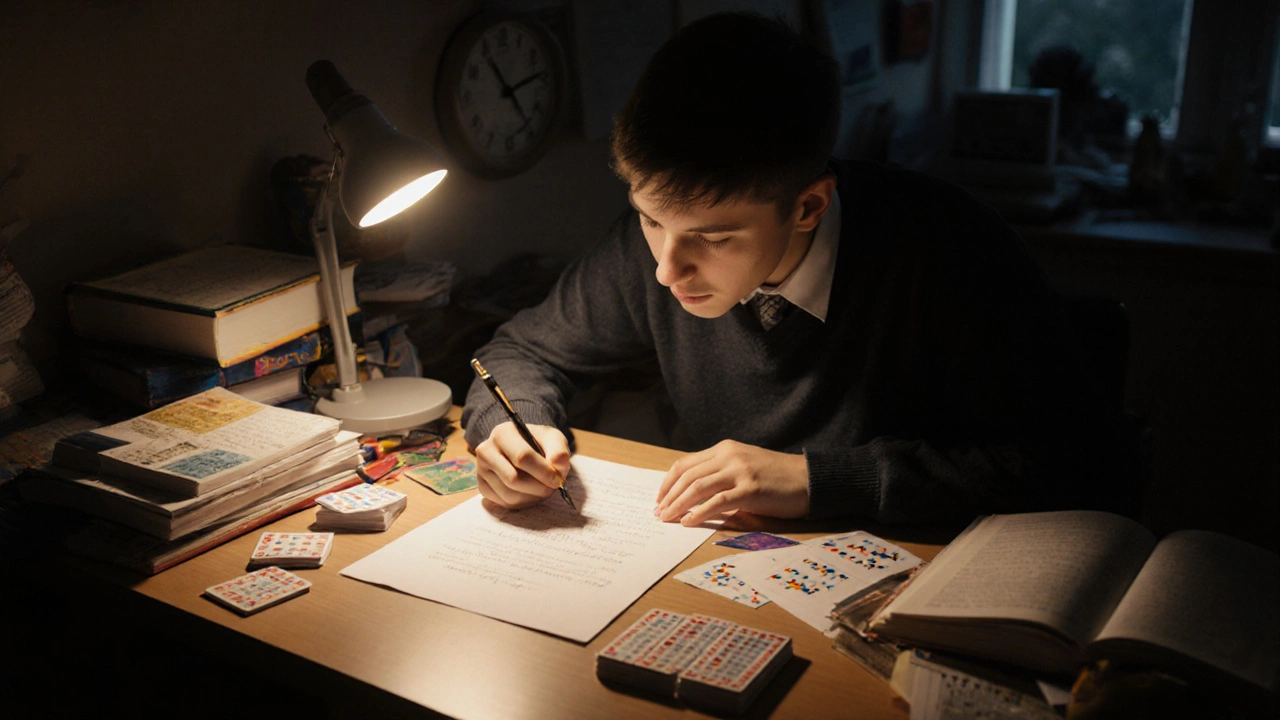GCSE Study Tips: Proven Strategies to Boost Your Grades
When it comes to GCSE study tips, practical, tested methods that help students manage workload, retain information, and perform better under exam pressure. Also known as GCSE revision strategies, these aren’t just about cramming—they’re about working smarter so you don’t burn out before exam season. The truth? Most students waste hours doing the same things that don’t stick. Flashcards alone won’t cut it. Rewriting notes? That’s busywork. What actually moves the needle is knowing how to study, not just how long.
Effective GCSE revision, the process of reviewing material over time to build long-term memory and confidence. Also known as spaced repetition, it’s not about one big night before—it’s about small, consistent sessions that stick. Top performers don’t study more—they study better. They use active recall, where they test themselves instead of just re-reading. They mix topics (interleaving) so their brain learns to switch gears, just like in the exam. And they know their weak spots early, so they fix them before panic sets in.
Time management is another big one. GCSE exam preparation, planning and practicing for final assessments by aligning study habits with exam format and timing. Also known as exam readiness, it’s not just about knowing the content—it’s about knowing how to answer under pressure. If you’ve never timed yourself doing a past paper, you’re flying blind. Exams aren’t tests of knowledge alone—they’re tests of pacing, clarity, and focus. Practice with a clock. Learn how long each question type takes. Know when to move on. That’s the difference between a 7 and a 9.
You don’t need to be a genius. You just need a system. The best GCSE students aren’t the ones who stay up until 3 a.m. They’re the ones who show up every day with a plan. They use free tools—like quiz apps, mind maps, or even voice notes—to turn quiet moments into learning ones. They ask for help before they’re drowning. They know their own rhythm: morning person? Study then. Night owl? Save hard topics for after dinner. It’s not about perfection. It’s about consistency.
And if you’re feeling overwhelmed? You’re not alone. Every student hits a wall. But the ones who push through don’t just rely on willpower—they rely on structure. Break big subjects into tiny chunks. Celebrate small wins. Sleep matters. So does food. And yes, taking a walk can be part of your revision. Your brain needs space to process.
Below, you’ll find real advice from students who’ve been there, teachers who’ve seen what works, and strategies that actually move the needle. No fluff. No gimmicks. Just what helps you get results—without losing your mind.

Is 1 Hour Revision Enough for GCSEs? Realistic Expectations for Students
- by Eliza Fairweather
- on 23 Nov 2025
Is one hour of revision enough for GCSEs? It depends on how much you’ve already studied. Learn how to use that hour wisely to boost your memory and grades-not waste it.
